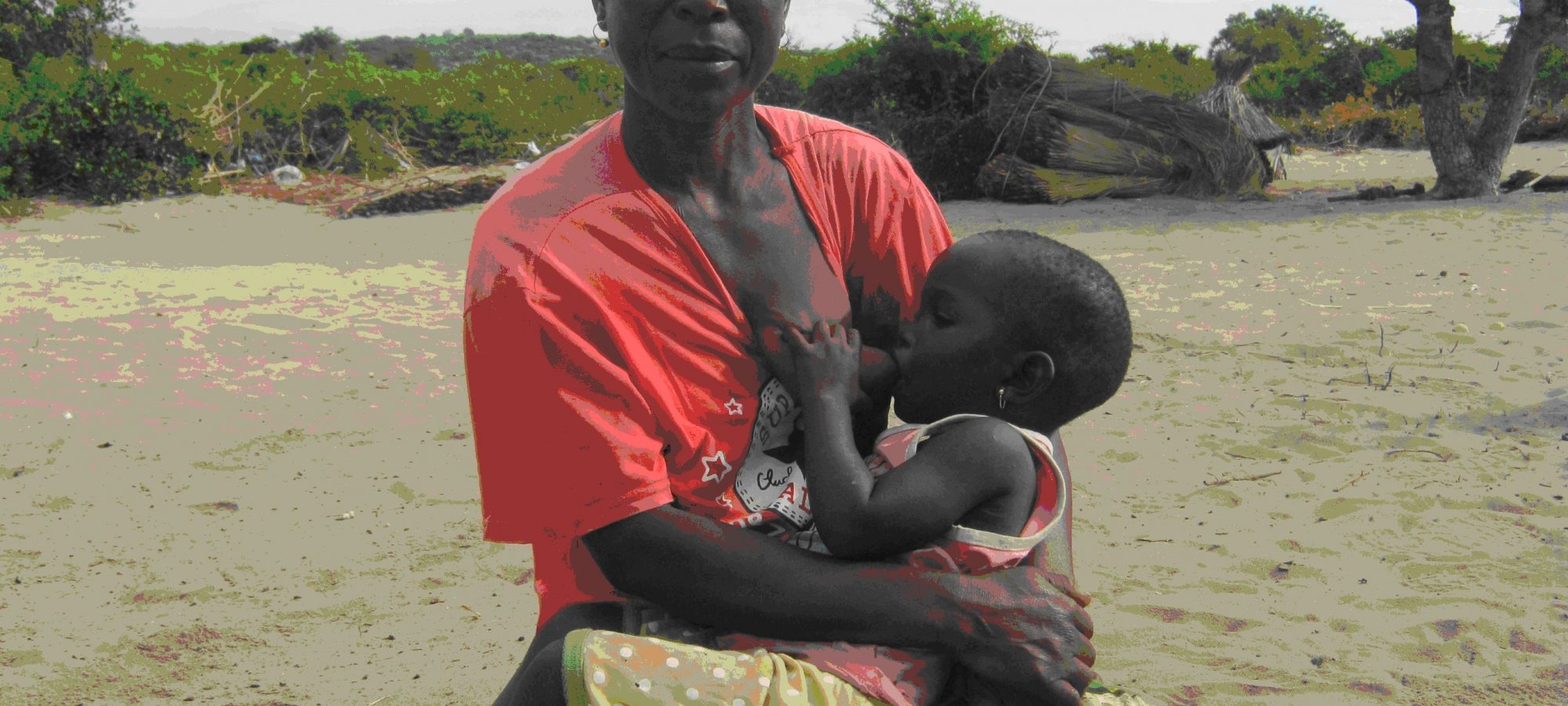Dieterio Magul is a Field Officer for Malaria Consortium’s community based child health programme in the Inhambane province of Mozambique. He works with the provincial health authorities to support the community health programme that has been running for over 30 years. Revitalisation of the programme by the Ministry of Health began in 2010. Malaria Consortium’s role has been to help train community health workers to diagnose and treat simple forms of the three main childhood diseases: malaria, pneumonia and diarrhoea.
Teresa has been living for over 20 years, with her partner and their seven children, in Pangaia – a village on the sandy island of Bazaruto, a few kilometres off the Mozambique coast. Although the island is known as a beautiful beach holiday destination by tourists, for local residents, access to basic health services remains challenging.
In 2011, Teresa was selected by her community to receive training to become a community health worker (CHW).
The three months training, supported by the Ministry of Health and Malaria Consortium, equips community members, like Teresa, with the skills and tools needed diagnose and treat common diseases in young children in their community, as well as to recognise the danger signs that signal a need for urgent attention at a health facility.
Teresa, a community health worker now for two years, is working hard to increase awareness of common diseases in her community and provide information on best practices that can help to improve family health.
Her work is challenging. On Bazaruto, many women work in their homes in the morning, before going to the beach to buy fish from returning fishing boats that they then sell to support their families.
“Young children suffer from this because their mothers are very busy and cannot always take them… and do not find the time to breastfeed them; so I have organised discussions on this topic at the very places where women are waiting for the fishermen. I explain to them that breast milk is very nutritious, and very important for the healthy growth of children. I think people need to know more about the importance of breastfeeding, because this can encourage them to schedule time for it.”
But Teresa’s efforts are bringing results and many women in the community have started to breastfeed their children more often and for longer.
Teresa is happy with the impact her work is having on health in the community and hopes that with support from her community and others she will be able to reach more community members with lifesaving information and drugs in her role as a CHW.
Malaria Consortium’s integrated community case management (ICCM) programme in Mozambique has been supported by the Canadian International Development Agency and the Planet Wheeler Foundation since 2009. Malaria Consortium’s role includes recruitment and training of CHWs to diagnose and treat malaria, pneumonia and diarrhoea appropriately, support to national and local health system to provide supervision and monitoring of community-based activities, as well as health promotion activities to increase awareness of malaria, pneumonia and diarrhoea management and prevention within the communities.
In addition, through funding from the Bill & Melinda Gates Foundation, Malaria Consortium is conducting research into innovative ways to improve the motivation and performance of APEs. This research initiative, the inSCALE project, aims to inform the scale-up of community health worker ICCM programmes to provide access to timely and appropriate treatment for common childhood illnesses across the developing world.
